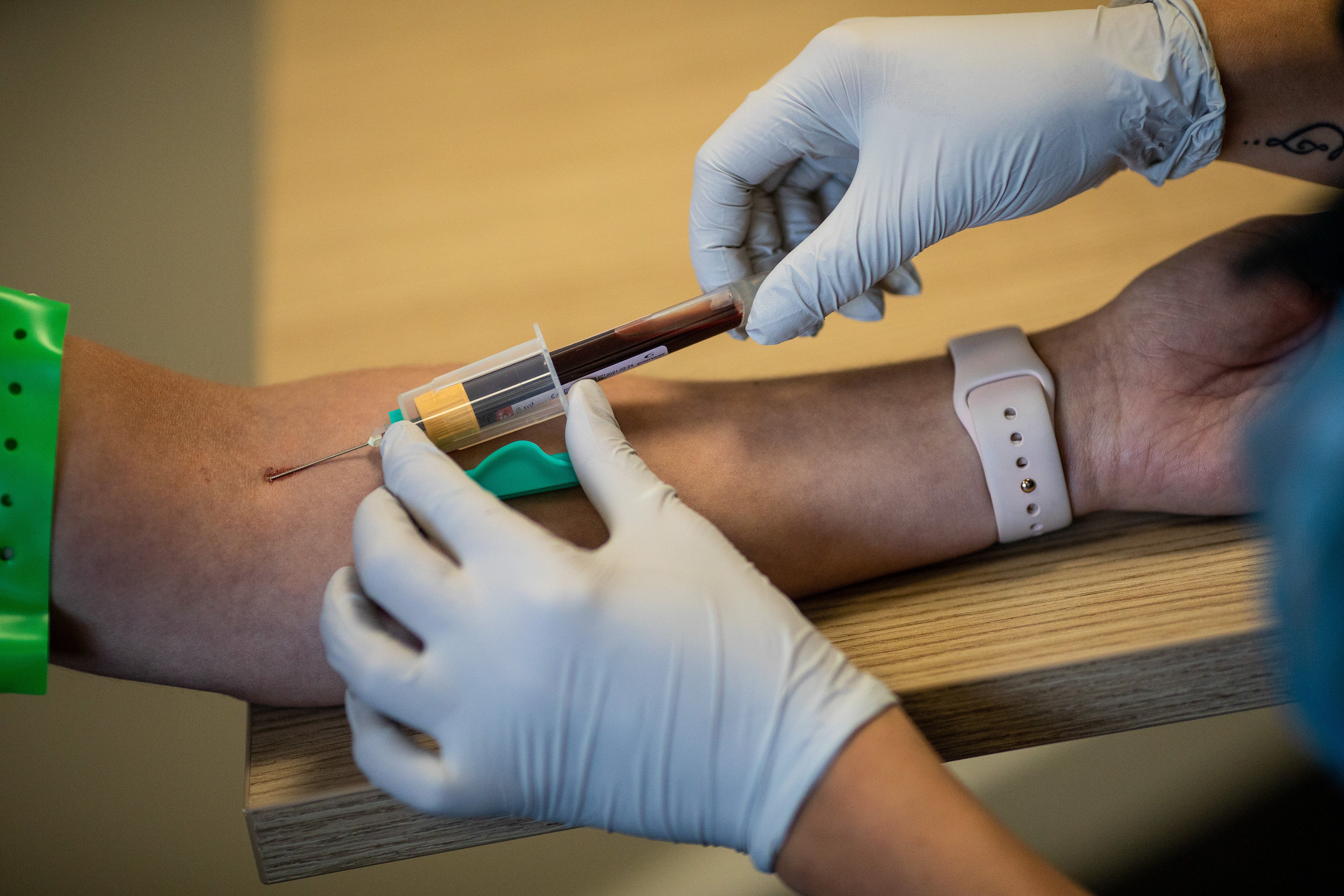Half of people in England now have antibodies against Covid, study says
ONS study finds declining antibody levels among older people further from the initial vaccination

Your support helps us to tell the story
From reproductive rights to climate change to Big Tech, The Independent is on the ground when the story is developing. Whether it's investigating the financials of Elon Musk's pro-Trump PAC or producing our latest documentary, 'The A Word', which shines a light on the American women fighting for reproductive rights, we know how important it is to parse out the facts from the messaging.
At such a critical moment in US history, we need reporters on the ground. Your donation allows us to keep sending journalists to speak to both sides of the story.
The Independent is trusted by Americans across the entire political spectrum. And unlike many other quality news outlets, we choose not to lock Americans out of our reporting and analysis with paywalls. We believe quality journalism should be available to everyone, paid for by those who can afford it.
Your support makes all the difference.More than half of people in England are now thought to have antibodies against coronavirus, according to the Office for National Statistics.
In a sign of the increasing success of the UK’s vaccination programme in protecting the public from the virus, the ONS said it estimated around 55 per cent of the population would test positive for antibodies in the week ending 14 March.
The study looks at the prevalence of antibodies based on a the ONS infection survey of private households. The presence of antibodies suggests a person has had the infection or has been vaccinated against the virus.
The ONS said there was a regional variation for antibodies with the northwest having the highest percentage of people with antibodies at 60 per cent. The southeast had the lowest level with 50 per cent.
More than three-quarters of people aged over 70 have tested positive for Covid-19 antibodies in England, Wales, Northern Ireland and Scotland.
Read more:
But the ONS warned it was seeing evidence of a reduction in antibodies in older people in the most recent data. It said: “This is likely due to people in these prioritised age groups having received their first vaccine dose but have not yet received their second dose. This does not necessarily mean they have no immunity protection against Covid-19.
“There are still many people who have received their first vaccine, but have not yet received their second dose, so we will regularly monitor antibody positivity as the vaccination programmes continue.”
Antibodies are only one part of the immune response to the virus and other factors such as the level of T cells are not measured by blood tests. The ONS said further work was needed.
In Wales and Northern Ireland, one in two people tested positive for antibodies.
In Scotland, just over two fifths, or 42 per cent, of people tested positive for antibodies.
Sarah Crofts, senior statistician for the Covid-19 infection survey said: “For the first time, we are presenting data on the number of people who have received at least one dose of a vaccine against Covid-19.
“We can already see the pattern between vaccination and testing positive for antibodies which is now very clear in the over 65s who are most likely to have received at least one dose. As we increase the collection of blood samples over coming months, we will see with greater clarity how antibody levels are changing in the UK population and, crucially, learn more about the impact of second doses.
“We thank everyone in our study for their continued participation, without which we would not be able to do this important work.”
The ONS study is part of an effort to track the virus in the population and is being run in partnership with the University of Oxford, the University of Manchester and Public Health England.
Join our commenting forum
Join thought-provoking conversations, follow other Independent readers and see their replies
Comments